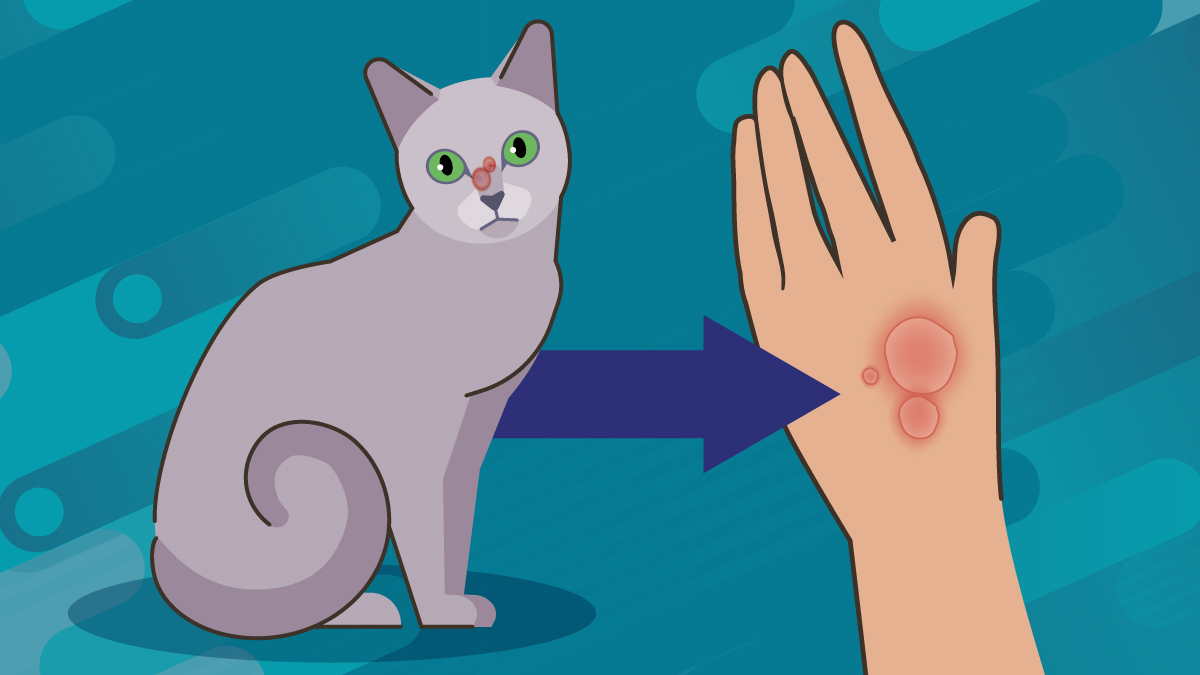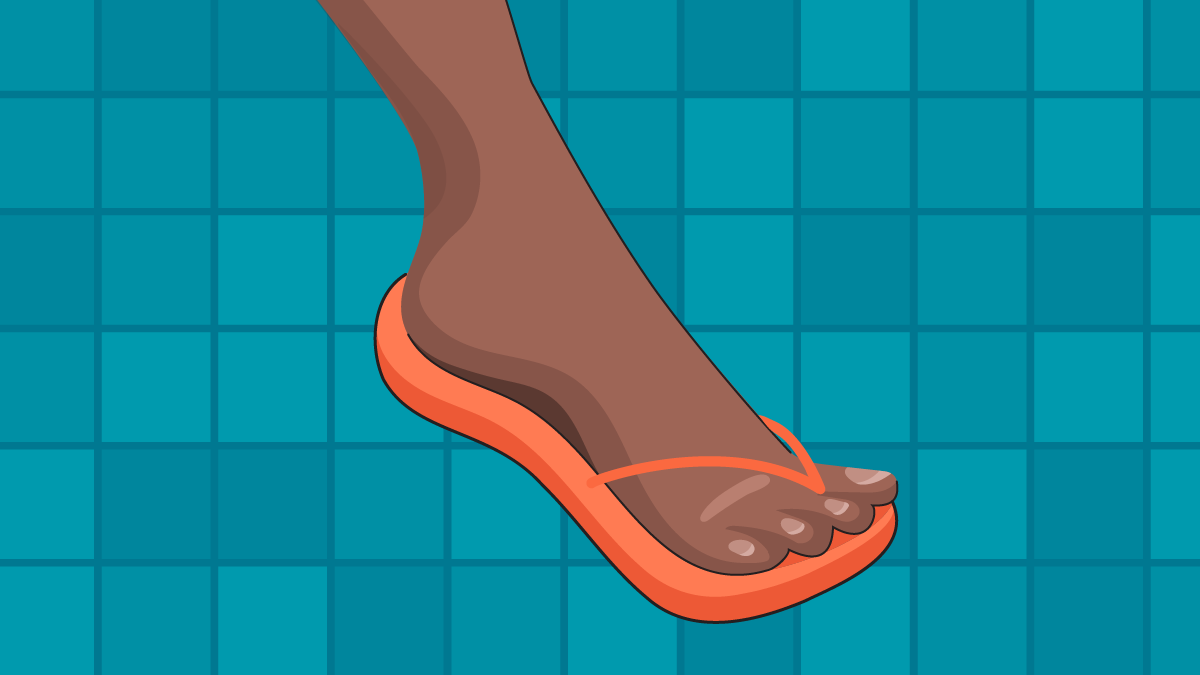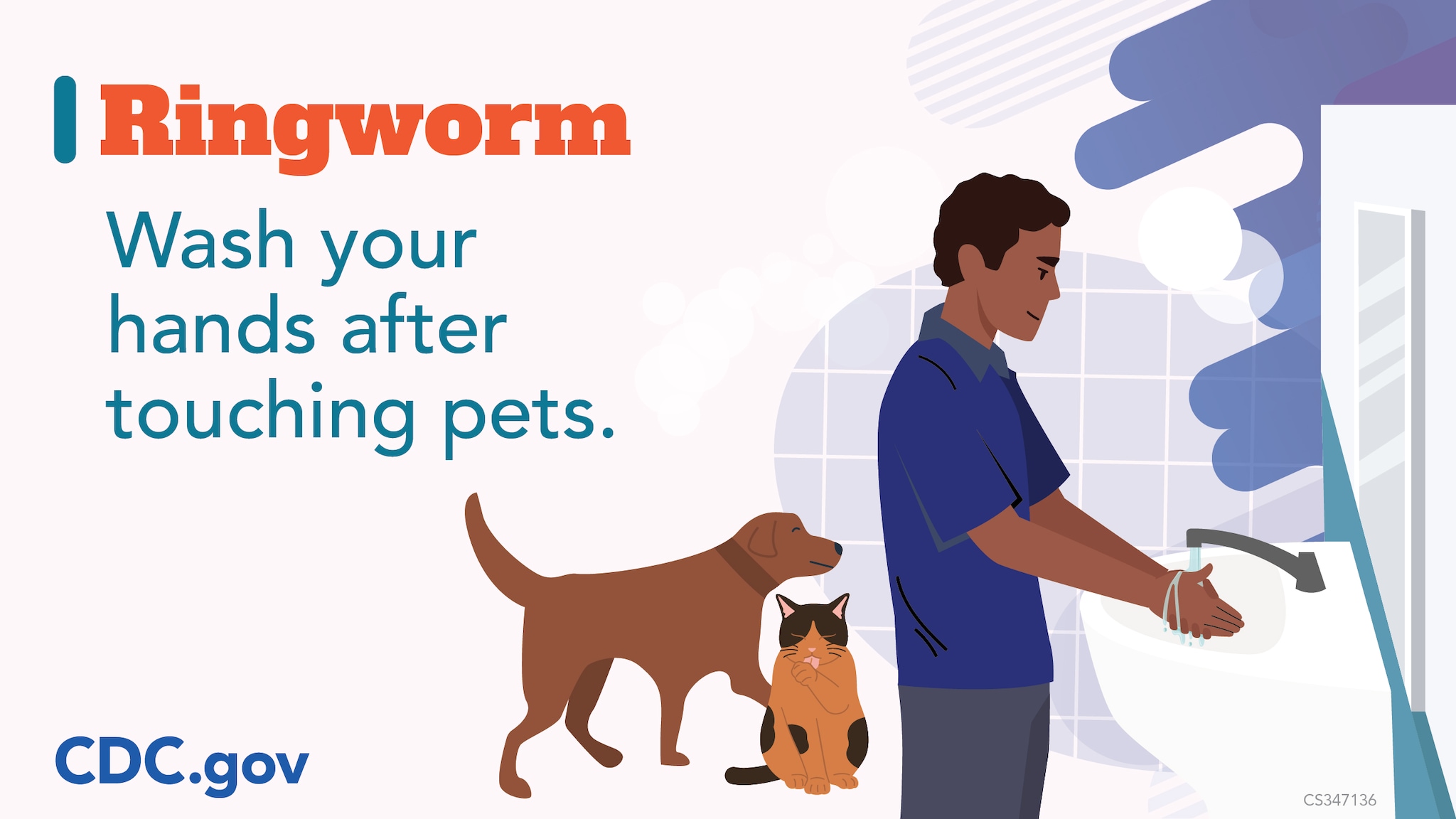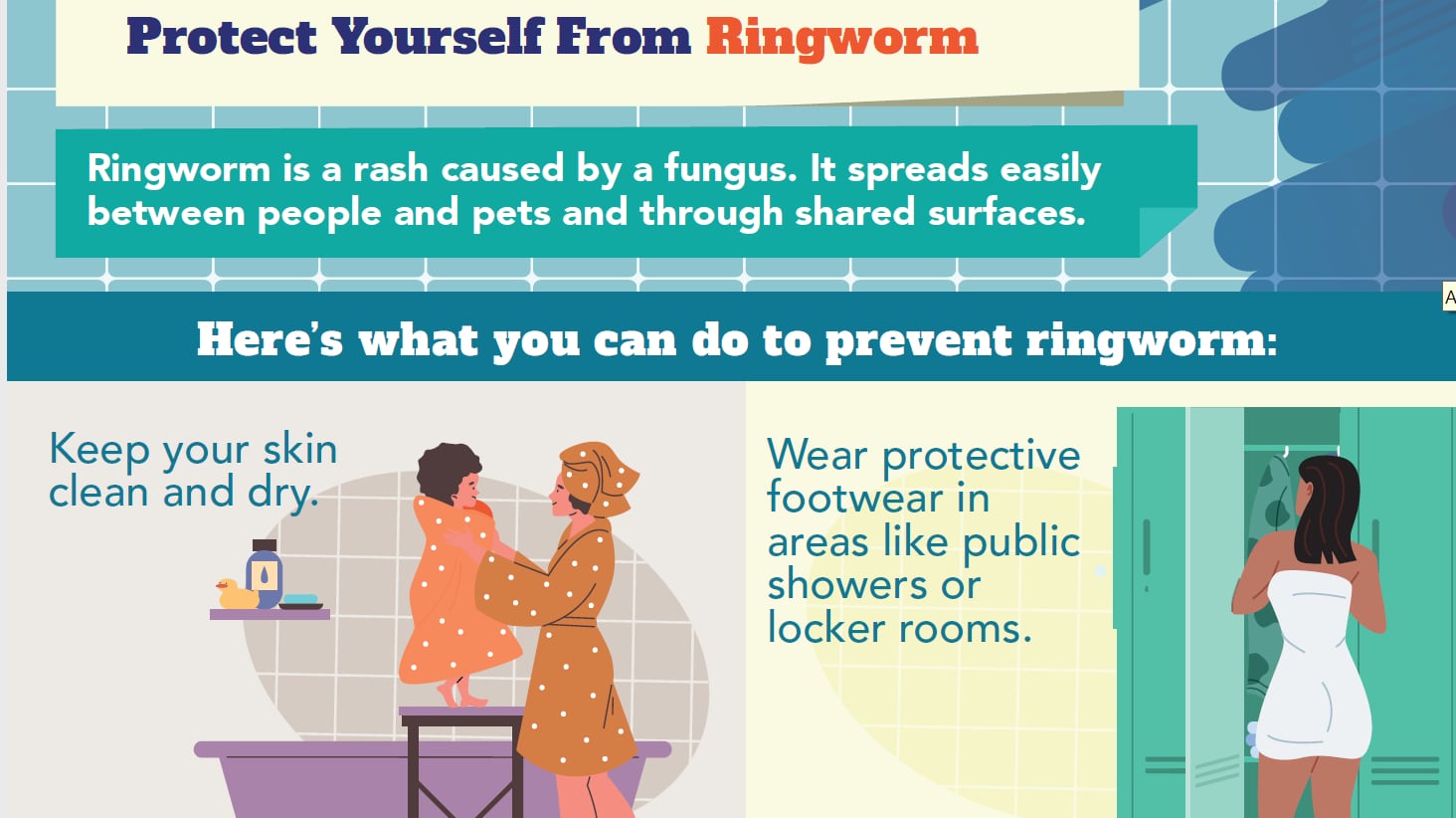Key points
- Ringworm is a common fungal skin infection that spreads between people, pets, and shared objects.
- Ringworm infections in the nails are caused by fungi getting in through cracks in the nails.
- Some ways to prevent infections include: keeping skin clean and dry and avoiding contact with infected people and animals.

Causes
Ringworm is caused by fungi and not a worm. The scientific names for the most common fungi that cause ringworm are Trichophyton, Microsporum, and Epidermophyton. Fungal nail infections can occur if fungi get under the nail through small cracks in the nail or surrounding skin.
Ringworm is very common and can be spread by:
- Skin-to-skin contact with people or animals with the infection.
- Shared objects (e.g., towels, bed sheets).
- Shared surfaces (e.g., locker room floors).
Some activities can increase the risk for getting ringworm, such as:
- Walking barefoot in public showers or locker rooms.
- Participating in contact sports like wrestling.
- Wearing tight shoes and socks.
- Excessive sweating.
- Close contact with animals.
Protect Yourself from Ringworm
Prevention methods
To help protect yourself from ringworm:
- Keep your skin clean and dry.
- Wear shoes that allow air to circulate freely around your feet.
- Wear protective footwear in areas like locker rooms or public showers.
- Clip your fingernails and toenails short and keep them clean.
- Change your socks and underwear at least once a day.
- Don't share clothing, towels, sheets, or other personal items.
Athletes can help prevent ringworm by:
- Taking a shower right after practice, matches, or games.
- Keeping sports gear clean.
- Not sharing sports gear (helmets, etc.) with other players.
- Wearing shoes or sandals in locker rooms and public showers.

Outbreaks in schools and daycare centers
Ringworm sometimes causes outbreaks in schools and daycare centers. Take your child to see a pediatrician if he or she develops ringworm symptoms. Consider letting the school or teacher know so they can help prevent it from spreading to other children.
If there is an outbreak occurring at your child's school or daycare, tell your child not to share personal items, such as clothing, hairbrushes, and hats, with other people. Check with your child's school or daycare to see if he or she can still attend classes or participate in athletics. Contact your local health department for more information.
Using disinfectants to kill fungal spores
Risk factors
Anyone can get ringworm, but people who have weakened immune systems may be especially at risk for infection and may have problems fighting off a ringworm infection.
People with diabetes have a higher risk of fungal nail infections that can become severe and lead to bacterial infections.
Some more severe forms of ringworm are becoming more widespread in other parts of the world. These forms are resistant to antifungal medications, meaning they cannot be treated by the medicines that usually kill the fungus. Travelers to these areas are at increased risk.
Pets

If your pet has ringworm, you can help protect yourself by taking these steps:
- Take your pet to the veterinarian right away for treatment.
- Wear gloves and long sleeves if you are handling a pet with ringworm.
- Wash your hands with soap and running water after contact with your pet.
- Vacuum the areas of the home that the pet commonly visits.
- Disinfect surfaces and bedding as appropriate.
Do not handle animals with ringworm if your immune system is weak in any way, especially if you:
- Have advanced HIV.
- Are undergoing cancer treatment.
- Are taking medications that suppress the immune system.
If one of your pets has ringworm, make sure you have every pet in the household checked for ringworm infection.

